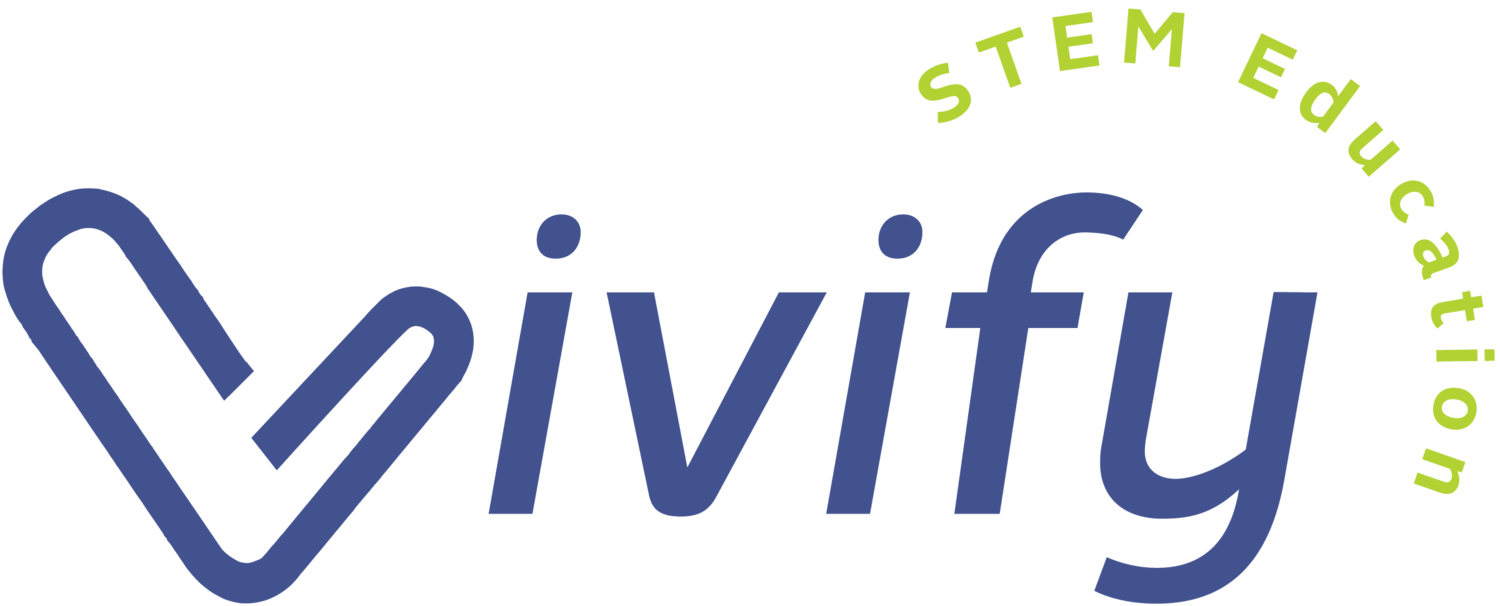
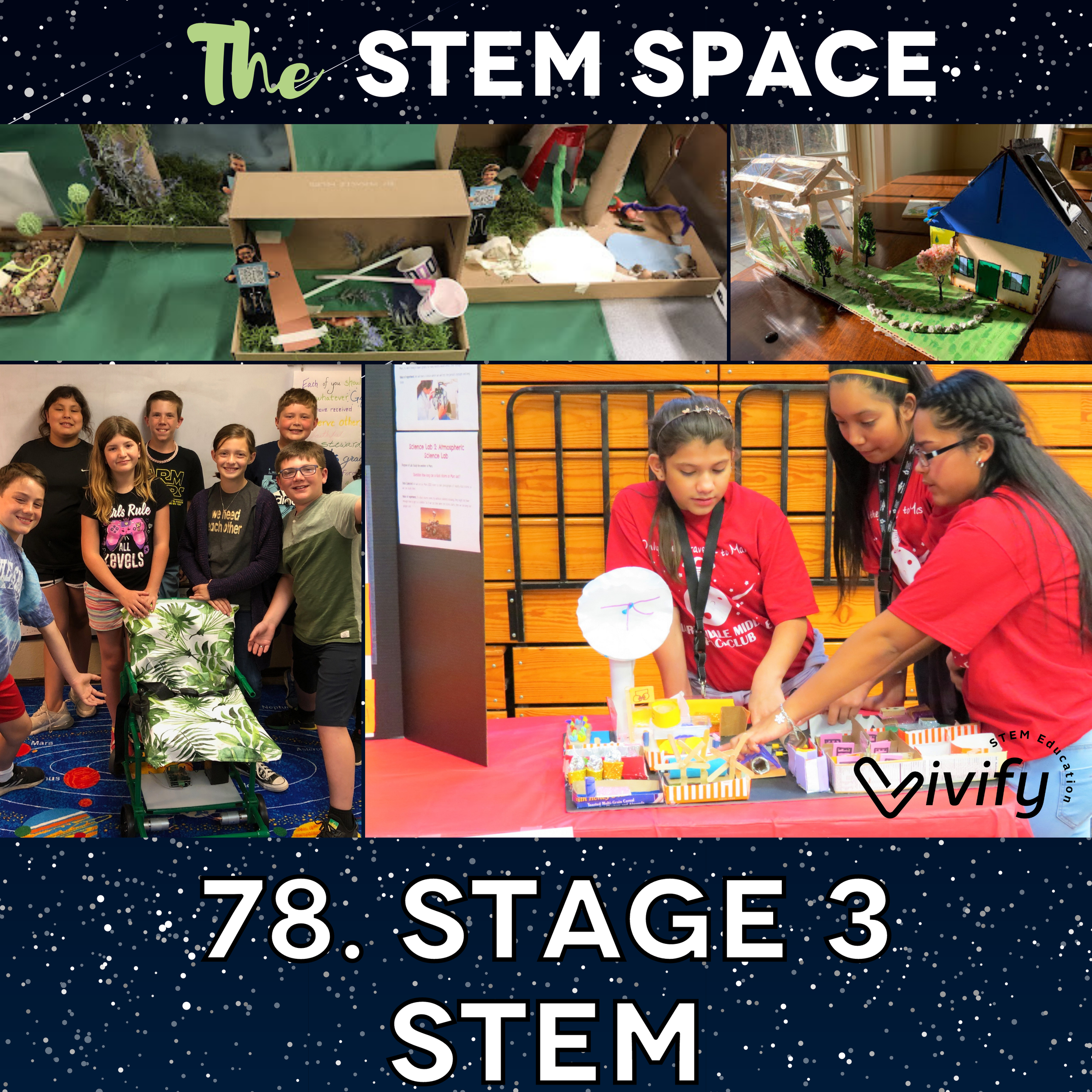
78. Stage 3 STEM
Ready to elevate your STEM class with a Stage 3 STEM project? Here is the part 2 we promised in episode 75! Claire and Natasha dive into ideas for long-term research-based STEM projects for elementary and middle school. We discuss animal habits, a project for a custom-fit aquatic wheelchair, and tackling a local city challenge. We also share how any Stage 2 engineering design challenge can be translated into a more in-depth Stage 3 STEM project.
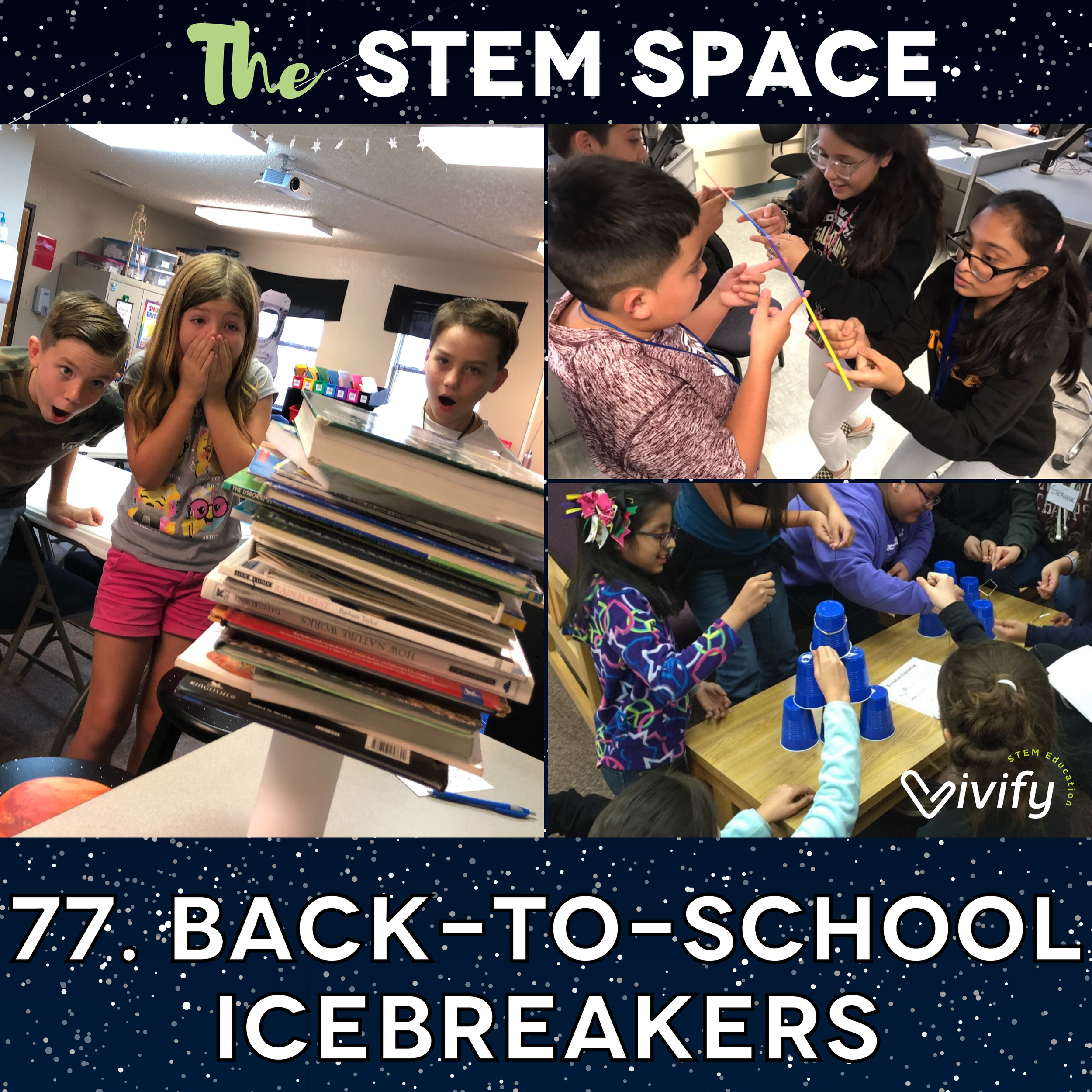
77. Back-to-School Icebreakers
Need some low-prep icebreakers for back to school? Claire shares her favorite Stage 1 STEM activities that build a foundation of teamwork, collaboration, and communication to set the stage for engineering design challenges. Plus, she describes how to add new constraints to some of our most popular STEM icebreakers to adapt for older students or to re-use with a class.

75. Space Colony Competition
Can you survive a mission to space? We invite your elementary and middle school students to submit their designs for a colony on the Moon or Mars that can keep a crew alive and happy! With a blend of research, engineering, architecture, math, and science - this is an epic Stage 3 STEM challenge that only requires recycled materials to bring it to life! Claire and Natasha discuss the launch of the virtual Space Colony Competition plus how Claire’s planning is going for her STEM classes in grades K through 8!
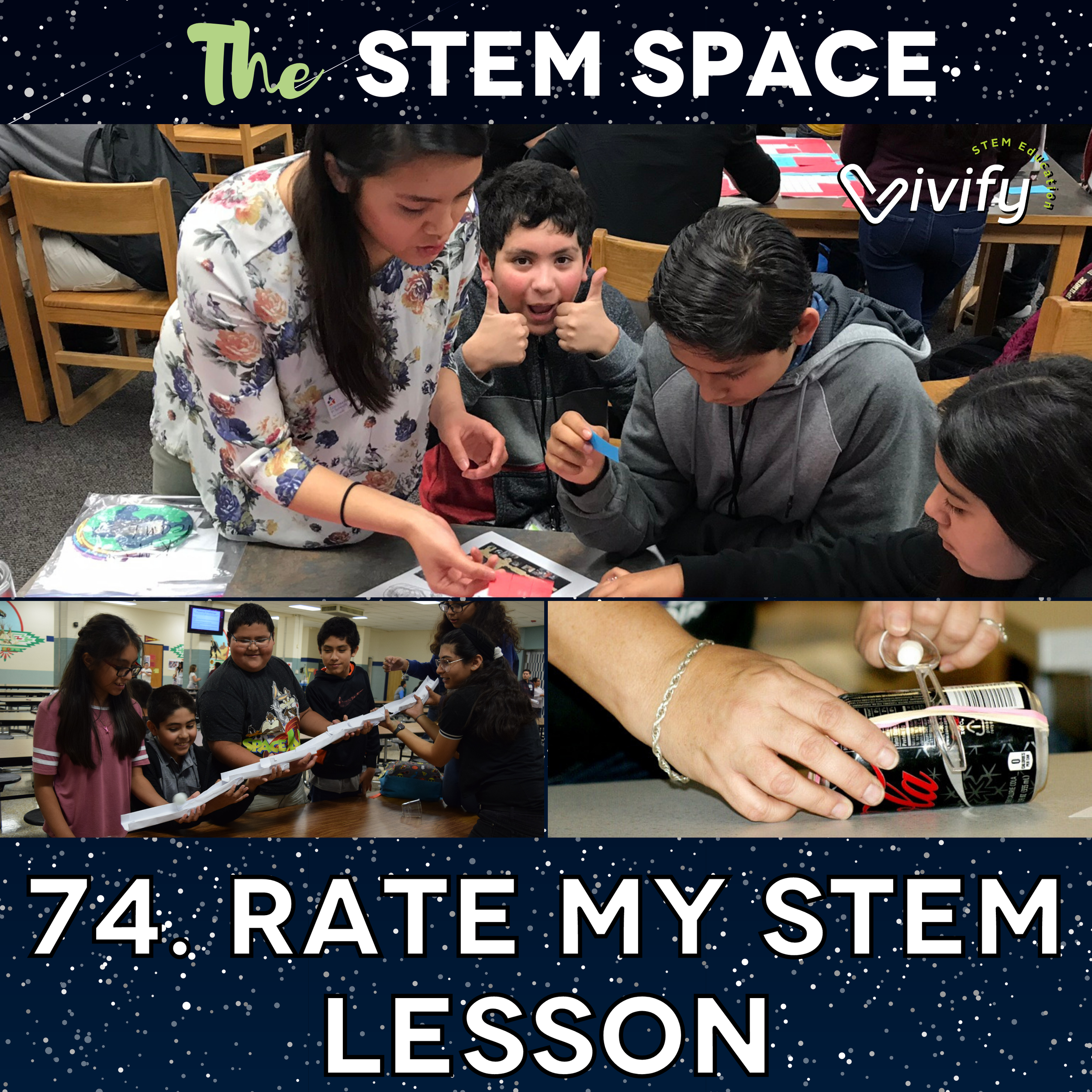
74. Rate My STEM Lesson
What is the focus in your STEM classroom? Do you love teambuilding activities? Or perhaps you spend most of the year on engineering design. In this episode, we discuss a quiz to rate your STEM lessons or program, plus some exciting projects we are working on including Alphabet STEM for kindergarten and an epic Space Colony Competition!
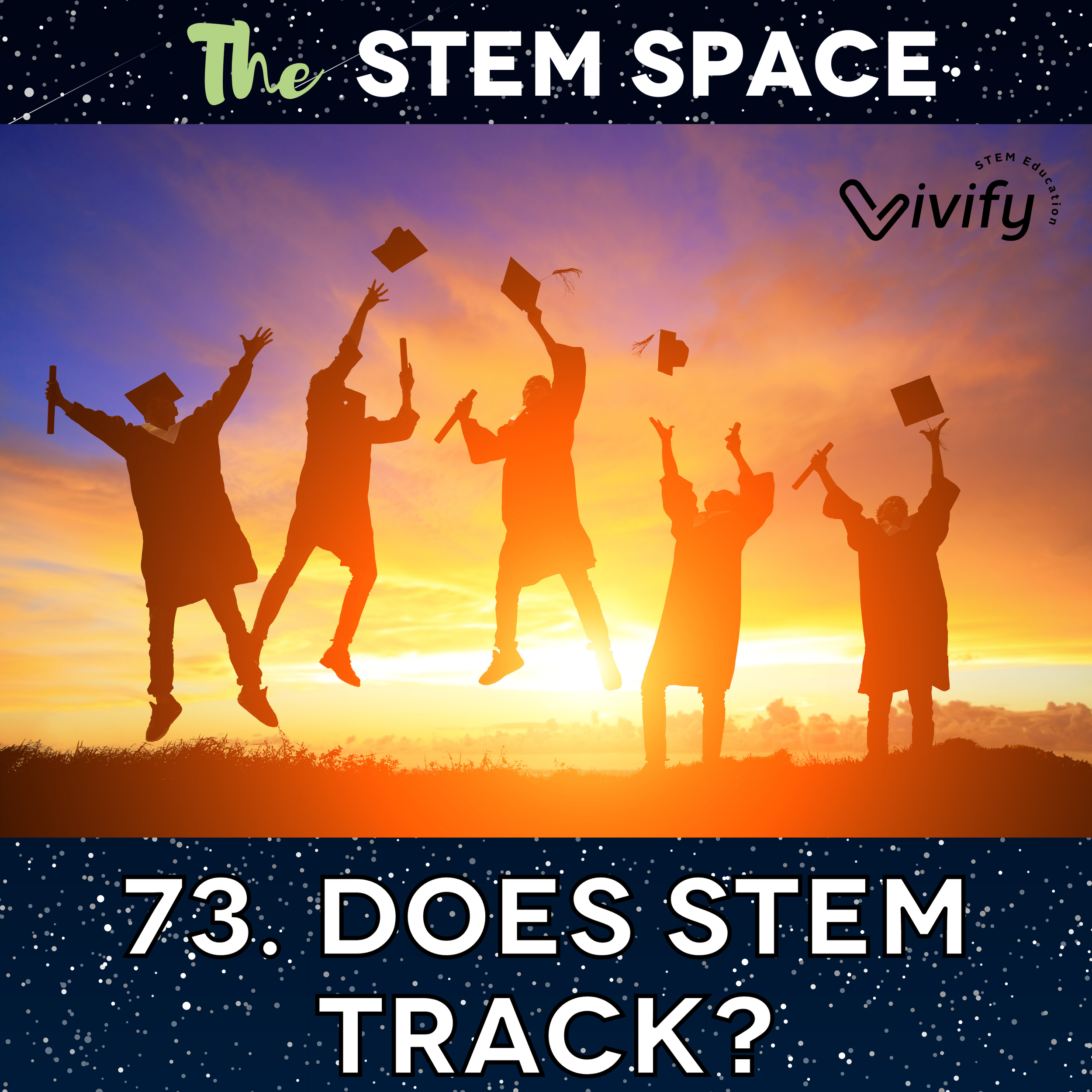
73. Does STEM Track?
Is STEM really accessible for all students? What is the purpose of tracking students in school? Claire and Natasha discuss inequalities in our school system and how putting students in a track may limit their educational potential. We also share our own experiences in struggling with math, but due to parental support and resources, we were able to persevere and become engineers. But what about students who don't have the same support system. Should they have less of an education? We get pretty passionate about this topic!

72. Astrophysics and Weightlifting with Dr. Roman Gomez
Natasha chats with Dr. Roman Gomez, a lead research scientist in the Space Science and Engineering division of Southwest Research Institute in San Antonio, Texas. Roman shares his story of growing up in San Antonio, joining the Army, and then eventually getting his Ph.D. in astrophysics. Using questions submitted by Space Club elementary and middle school students, we discuss his journey in STEM, how he learned from his mistakes and his passion for all this space and science.
